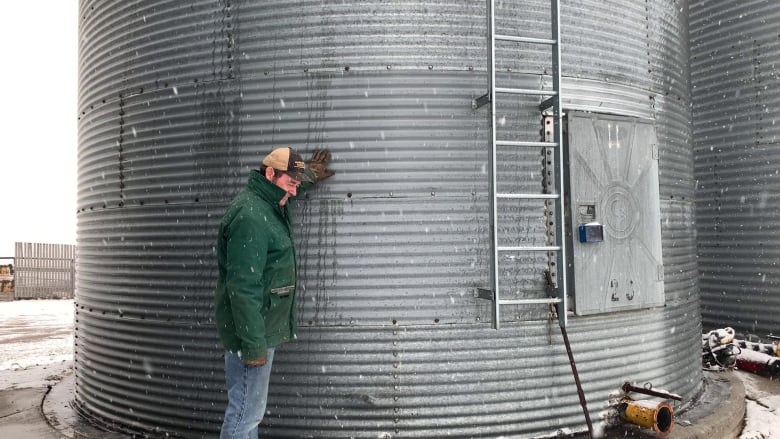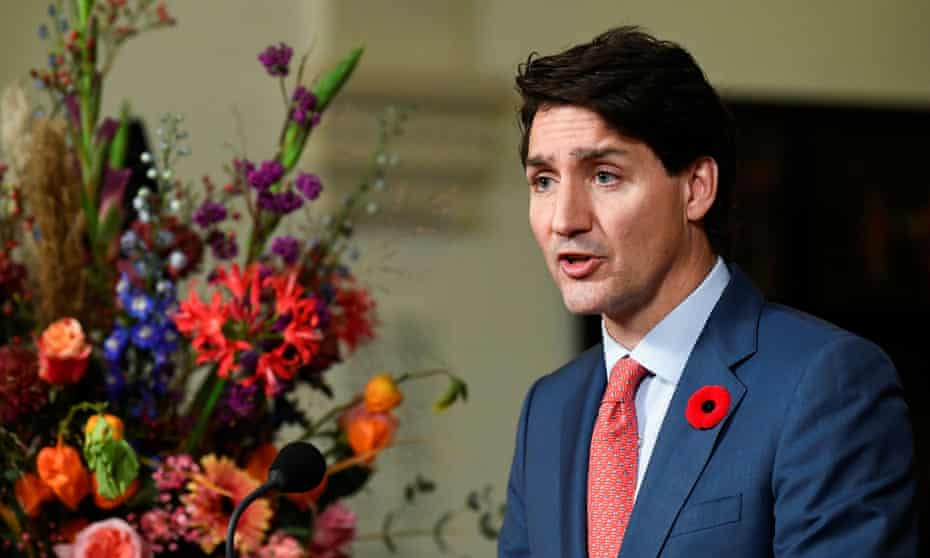This Alberta doctor dad and teen want you to know climate change already harms health
Youth climate activist Sadie Vipond and emergency physician Joe Vipond to lobby at COP26 climate conference
Our planet is changing. So is our journalism. This story is part of a CBC News initiative entitled "Our Changing Planet" to show and explain the effects of climate change and what is being done about it.
Sadie Vipond was just seven years old when she first experienced the negative effects of extreme weather, the kind expected to happen more often with climate change.
Her Calgary neighbourhood was evacuated because of severe flooding in 2013, the most destructive in Alberta's history.
"I remember being woken up in the middle of the night by my grandmother saying, 'We have to go.' And I remember driving up to a family friend's house and staying there for three days, I believe, and school had been cancelled at that point."
Though their family home survived, Sadie, now 15, told White Coat, Black Art host Dr. Brian Goldman she was old enough to sense the danger in the situation and "definitely was very worried."
"And now I am worried that in the future, because of the impacts of the climate crisis, the floods are going to get worse and next time … we might not be as lucky."
The experience started her on a road to becoming a youth climate activist, presenting to Calgary city council at age 12 and in 2019, becoming one of 15 young plaintiffs in a lawsuit against the federal government. The ongoing suit, currently before the Federal Court of Appeals, says Canada's failure to protect them from climate change is a violation of the youths' charter rights.
This week Sadie is attending COP26, the international climate conference, in Glasgow, Scotland, with her father, emergency physician and climate crusader Dr. Joe Vipond.
He said he's declined invitations to the conference in the past out of concern he couldn't make enough of an impact to offset the carbon emissions associated with the flight, but "this time Sadie's going, and I think she can make a difference. I think her voice is important."
Through sharing ideas and leveraging Sadie's viewpoint as a young person, the pair hope to draw attention to the need for decisive climate action, including the very real dangers a warming planet already poses to human health.
- Have questions about COP26 or climate science, policy or politics? Email us: ask@cbc.ca.
"There was so much smoke this summer that I could not do the regular activities that make my mental health stable, as in going outside hiking, biking, running, all those things," said Sadie.
Her dad says smoke from wildfires is one of two main ways the climate is affecting the health of people in Western Canada in recent years.
"That wildfire smoke will recurrently wash over our city and has impacts on, in particular, the pulmonary diseases like COPD [chronic obstructive pulmonary disease] and asthma," Joe Vipond told White Coat, Black Art.
He said he distinctly remembers seeing a patient one October a few years ago whose asthma was still unmanageable months after that summer's wildfires. "It just hadn't gone away."
The other major climate issue is the frequency of extreme heat events, including the "heat dome" that so badly impacted the western provinces this summer.
"I don't think anybody expected things to get that hot that fast," Vipond said.
A global team of scientists found the temperatures reached were "virtually impossible" without climate change, on the order of a once-in-a-millenium event. But if the planet warms to 2 C above pre-industrial levels, that kind of extreme heat event could happen every five to 10 years.
Poorly understood
The heat dome caused 570 deaths in B.C. and another 66 deaths in Alberta.
"A lot of people haven't assimilated this knowledge, but this is the worst weather mortality event since Confederation … and yet we're not really even talking about it," said Vipond, who is also the president of the Canadian Association of Physicians for the Environment.
Not only does the public not understand the risks of climate change to human health, it's not even taught to physicians in medical school, says Dr. Courtney Howard, an emergency physician for Northwest Territories Health and Social Services in Yellowknife, and a leading expert on climate and health.
"In 2009, the Lancet, which is one of the world's most prestigious health journals, said that climate change is the biggest health threat of the 21st century," said Howard, who is also the advocacy co-chair for the World Health Organization's civil society working group on climate change and health, and a board member of the Global Climate and Health Alliance.
At the time Howard was a recently graduated emergency room physician trained at the University of B.C. and McGill, filling in for another doctor in Inuvik, one of the most rapidly warming places in the world.
"And I was like, what? How did you forget to tell me about the biggest health emergency?"
Although that was more than a decade ago, climate health risks still aren't part of curricula at most medical schools, she said.
"We've kept health and the environment in these two silos, and we urgently need to connect them."
The Lancet's latest report on climate and health, published October 20, says the health impacts will get much worse if leaders fail to commit to more ambitious targets at COP26.
Not only is managing climate change necessary for our own individual health, it's key to keeping our health systems up and running, said Howard.
Think of the hospital in Fort McMurray that had to be evacuated during wildfires in 2016, she said, or the major saline manufacturing facility in Puerto Rico that was taken out by Hurricane Maria in 2017, causing a saline shortage in hospitals around the world that lasted more than a year.
To date, climate scientists haven't done a great job of encouraging people to take action, she said. "We were using images like polar bears to try to evoke emotion. But when we look at the communication studies that have since been done, it turns out, nobody's going to change what they do next Tuesday on behalf of a polar bear."
What does work is presenting climate change within the context of health, letting people know that anytime we phase out fossil-fuel-related transport or electricity, in favour of a low-carbon option, we decrease air pollution, Howard said.
"And that actually saves lives from the top five chronic diseases that kill Canadians. And so that's cancer, heart disease, stroke — the things that our loved ones die of."
In jurisdictions such as Ontario where coal-fired power has been phased out, she said a lot of the rationale has been centred around keeping kids out of the emergency department with asthma.
Small changes add up
Likewise, every small decision to ride a bike instead of drive, eat a plant-based meal instead of meat or divert a piece of waste from landfill makes a difference, said Howard.
"What the Intergovernmental Panel on Climate Change tells us is that every degree matters a tremendous amount in terms of preventing the feedback loops that could take us into a planet where the climate system spirals out of control. So what that means is every single change saves lives."
At COP26 to take part in a documentary about youth climate activists in which she is featured, Sadie Vipond said, "I really hope that I can make some of a difference, even if it's just being another one of the participants in the protests, or educating my friends in talking about the climate crisis and telling them why this is so important to me."
Written by Brandie Weikle. Produced by Colleen Ross with help from Rachel Sanders and Amina Zafar.
DR. VIPOND HAS BEEN THE VOICE OF ALBERTA DOCTORS DURING THE SUMMER WHEN THE KENNEY AND HIS UCP GOVT OPEN THE PROVINCE FOR THE CALGARY STAMPEDE AND THE LEFT IT OPEN TO A MASSIVE FOURTH WAVE OF COVID. WORST IN CANADA AND AT ONE POINT WORST IN NORTH AMERICA
HE GAVE DAILY UPDATES ON THE CONDITION OF THE COVID CRISIS AND THE CONDITION IN OUR HOSPITALS

























